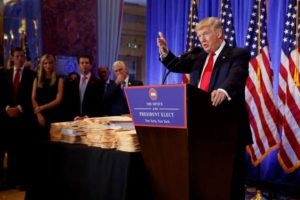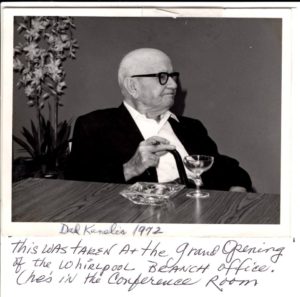I have heard a lot of talk of the “u-word” among those who are running for president of the United States.
They want to bring unity to the country. They want to bridge the divide that is growing between and among various ethnic, religious, racial and political groups.
They say we are living in (arguably) the most divisive period in our nation’s history. I agree with their goal. I favor a more unified country, too. The divisions that have torn us apart have created nations within the nation.
I am going to disagree with the implication I have heard from some of the Democrats running for president that this division is the worst in our history.
We had that Civil War from 1861 to 1865. The nation fought against itself, killing 600,000 Americans on battlefields throughout the eastern third of what is now the United States of America.
The Great Depression brought about huge division, too. Americans tossed out a president and brought in another one who promised a New Deal. It took some time for the economy to recover. Indeed, it’s been argued that World War II was the catalyst that sparked the nation’s economic revival.
Then came two more wars: in Korea and Vietnam. Those conflicts produced division as well. Vietnam, particularly, brought death in our city streets as well as in far-off battlefields.
The divisions today are severe. Donald Trump campaigned for the presidency pledging to unify the nation. He has failed. Indeed, his rhetoric only has deepened the divide.
The white nationalist debate that has flared with the New Zealand massacre allegedly by someone associated with white supremacists has underscored the division.
So now we have a huge and growing field of Democrats seeking to succeed Donald Trump as president. One of the themes that links them all is their common call for unity. One of them, Beto O’Rourke, says he wants to “restore our democracy.” OK, but . . . how?
Seeking unity is a noble and worthwhile goal. I applaud any candidate who says he or she wants to make that a top priority.
However, I am no longer in the mood for platitudes. I need some specifics on how to achieve it. I know that Donald Trump is a lost cause. He cannot unify his own White House staff, let alone a nation he was elected to govern.
The rest of the field needs to lay out their plans to achieve what Trump has failed to do.
In . . . detail!





